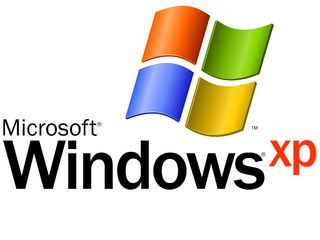Government strikes last minute deal over extended Windows XP support
UK government secures another year of support for public sector systems running Windows XP

A deal between the UK government and Microsoft has secured a further 12 months of Windows XP support for the public sector.
This last minute arrangement, worth 5.548m to Microsoft, sees the software giant agree to support systems running Windows XP, Office 2003 and Exchange 2003 across the breadth of central and local government organisations. This includes the reported 1 million devices running Windows XP throughout the NHS in England.
Analysts predict many UK organisations still use Windows XP and are not likely to cease doing so when Microsoft stops supporting it on 8 April.
Gartner vice-president and distinguished analyst Michael Silver said: "Almost every organisation will have some XP left - there's lots of Windows 95 running in hospitals, for example. But overall, when support ends, we estimate that 20-25 per cent of enterprise systems will still run XP and one third of enterprises will have more than 10 per cent of their systems remaining on XP."
However, the Government's deal stipulates its organisations must have a robust plan to migrate away from Microsoft's end of life software within a year. This means a flurry of upgrade activity can be expected throughout the public sector over the coming months.
Analyst house TechMarketView claims the UK Government has done well to secure extended support after its US counterparts failed to negotiate a similar agreement with Microsoft.
However, the market watcher also wants to know why the Government left it so late.
Get the ITPro. daily newsletter
Receive our latest news, industry updates, featured resources and more. Sign up today to receive our FREE report on AI cyber crime & security - newly updated for 2024.
"UK government organisations will have known about the April 2014 deadline for more than six years," said Georgina O'Toole, research director at TechMarketView.
"The need for such a deal calls into question why so many government organisations have failed to act at a time when cyber threats are on the increase. Budget cut pressures? Poor IT management? Problems due to bespoke software being built for XP? The clock has started ticking all over again."
Public sector organisations will now have the option to upgrade to Windows 8.1, the latest Microsoft desktop operating system.
So far adoption of Windows 8 and 8.1 has not been prolific in both the public and private sectors.
IBM company Fibrelink extracted data from over 1 million desktops and laptops and found that less than 1 per cent use Windows 8. Meanwhile, a recent Spiceworks survey of IT professionals revealed only seven per cent plan to upgrade their current operating systems to Windows 8.
Spiceworks also found that 76 per cent of IT professionals currently run Windows XP on some devices and of those, 36% will leave Windows XP on at least one device when it enters end of life.
Roland is a passionate newshound whose journalism training initially involved a broadcast specialism, but he’s since found his home in breaking news stories online and in print.
He held a freelance news editor position at ITPro for a number of years after his lengthy stint writing news, analysis, features, and columns for The Inquirer, V3, and Computing. He was also the news editor at Silicon UK before joining Tom’s Guide in April 2020 where he started as the UK Editor and now assumes the role of Managing Editor of News.
Roland’s career has seen him develop expertise in both consumer and business technology, and during his freelance days, he dabbled in the world of automotive and gaming journalism, too.





